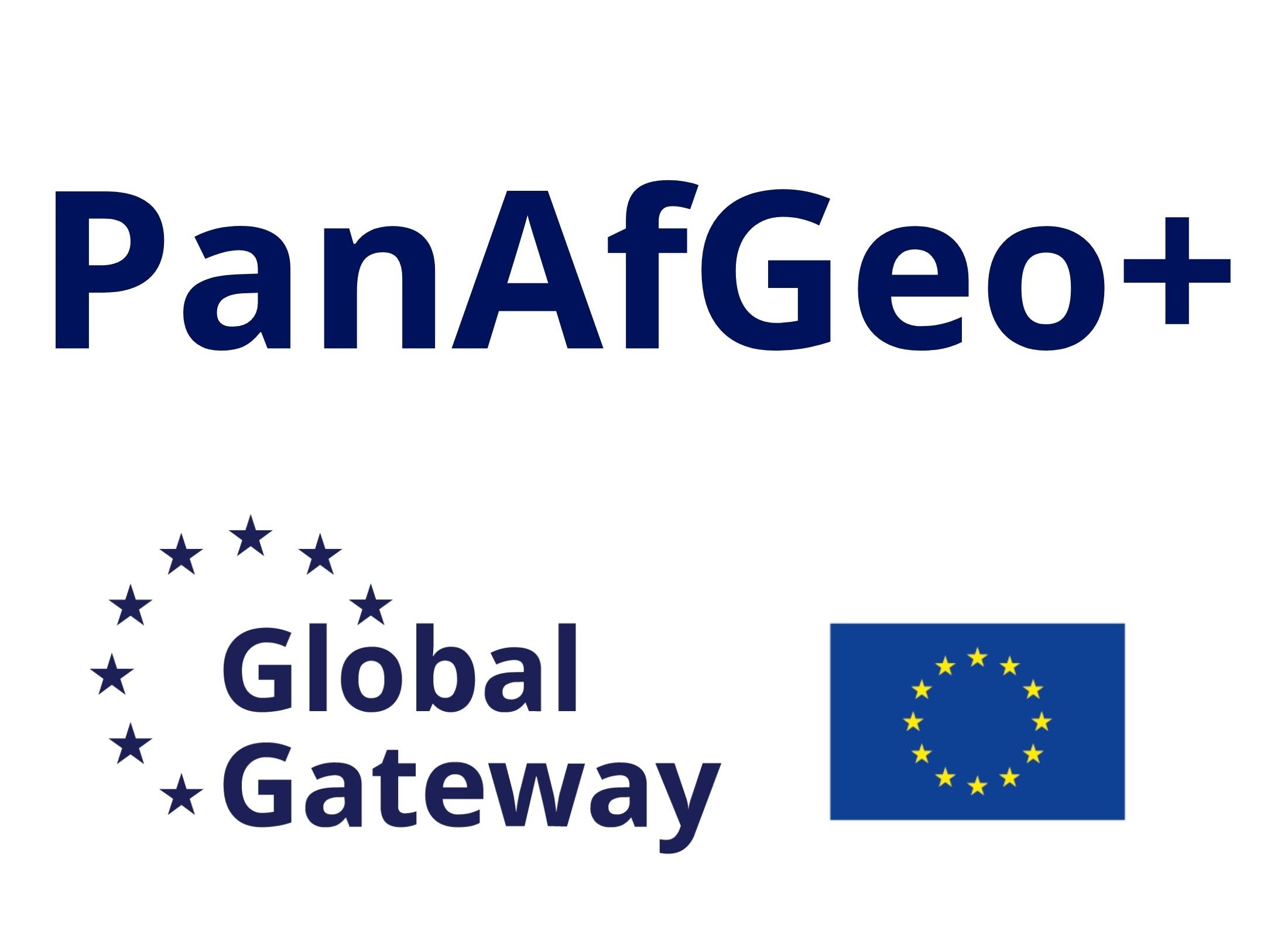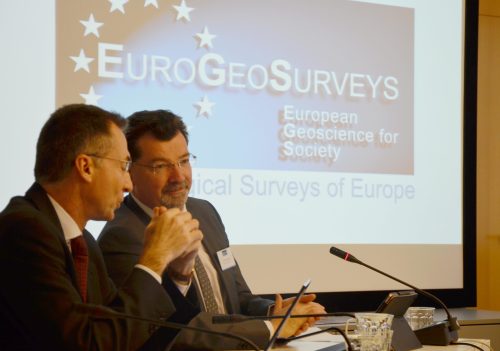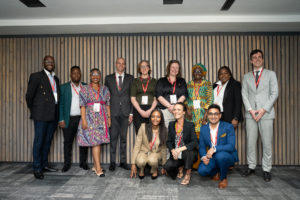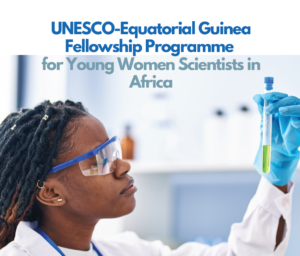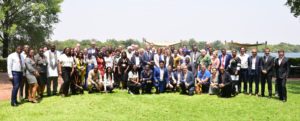[:en]The EuroGeoSurveys Director’s Workshop took place on 25th March 2015 in Brussels. The yearly meeting of the Directors of the European Geological Surveys and Geological Surveys from all around the world was focused on the theme “Geological Infrastructure priorities in Africa and beyond”, discussing the geological infrastructure needs in Africa and in other areas of the world. The Workshop topic matched the High level Conference ‘EU-AU Joint Session on Infrastructures for the Minerals Sector’ of the previous week, focusing on the infrastructure needs of the minerals sector in Africa (including transport, ICT, water and energy as well as all other types of infrastructure).
EuroGeoSurveys welcomed high level guests from Africa, North America, Europe, Asia, etc. together with representatives of EU Institutions and stakeholders, resulting in a very high attendance of about 90 participants. Ms Françoise Moreau, Head of the Africa-EU Partnership, Peace Facility Unit at the European Commission’s DG for Internal Cooperation and Development, explained that in the context of the Joint EU Africa Strategy, of which Roadmap 2014-2017 was adopted last year, raw materials and mineral resources have been identified among the priorities for future cooperation and political dialogue between Europe and Africa. In this regard, the Pan-African Programme established in 2014, the first covering Africa as a whole, supports projects with added-value in areas of shared interest for the EU and Africa. This is why the EC supports the reinforcement of the cooperation between African and European geological surveys with a view to provide to interested African governments better information on their still unexploited mining resources. The economic boom of several African countries should be maximised and that growth should be translated in poverty reduction. This means that the exploitation of the benefits of raw materials should benefit local population.
The DG for Enterprise and Industry (DG GROWTH) is looking at the same direction. Ms Flor Pulido, Head of the Raw Materials, Metals, Minerals and Forest-based Industrie Unit at DG GROWTH, during her keynote speech, presented how EGS-OAGS cooperation on geological knowledge and skills can contribute to the EU-AU vision for raw materials. Mr Ramgwede, Permanent Secretary of the Organization of African Geological Surveys (OAGS), reiterated that the infrastructure is one of the key drivers of the competitiveness with a material impact on Africa’s potential growth. Mr Tiyapo Hudson Ngwisanyi Director of the Geological Survey of Botzwana (BGI), illustrated some of the challenges faced by BGI in restructuring the institute and how these challenges might be addressed with the cooperation EGS-OAGS.
PanAfGeo, ambitious project aiming at increasing knowledge and skills in African Geological Surveys, perfectly responds to these needs. The preliminary phase of PanAfGeo (a joint EGS-OAGS effort to produce a feasibility study) was recently concluded. New political developments are therefore expected in order to establish a long-term strategic cooperation in several areas such as governance of natural resources, sustainable exploitation of non-energy mineral resources, prevention and mitigation of natural and man-made disasters and support to the development of the local mining sector.[:fr]
The EuroGeoSurveys Director’s Workshop took place on 25th March 2015 in Brussels. The yearly meeting of the Directors of the European Geological Surveys and Geological Surveys from all around the world was focused on the theme “Geological Infrastructure priorities in Africa and beyond”, discussing the geological infrastructure needs in Africa and in other areas of the world. The Workshop topic matched the High level Conference ‘EU-AU Joint Session on Infrastructures for the Minerals Sector’ of the previous week, focusing on the infrastructure needs of the minerals sector in Africa (including transport, ICT, water and energy as well as all other types of infrastructure).
EuroGeoSurveys welcomed high level guests from Africa, North America, Europe, Asia, etc. together with representatives of EU Institutions and stakeholders, resulting in a very high attendance of about 90 participants. Ms Françoise Moreau, Head of the Africa-EU Partnership, Peace Facility Unit at the European Commission’s DG for Internal Cooperation and Development, explained that in the context of the Joint EU Africa Strategy, of which Roadmap 2014-2017 was adopted last year, raw materials and mineral resources have been identified among the priorities for future cooperation and political dialogue between Europe and Africa. In this regard, the Pan-African Programme established in 2014, the first covering Africa as a whole, supports projects with added-value in areas of shared interest for the EU and Africa. This is why the EC supports the reinforcement of the cooperation between African and European geological surveys with a view to provide to interested African governments better information on their still unexploited mining resources. The economic boom of several African countries should be maximised and that growth should be translated in poverty reduction. This means that the exploitation of the benefits of raw materials should benefit local population.
The DG for Enterprise and Industry (DG GROWTH) is looking at the same direction. Ms Flor Pulido, Head of the Raw Materials, Metals, Minerals and Forest-based Industrie Unit at DG GROWTH, during her keynote speech, presented how EGS-OAGS cooperation on geological knowledge and skills can contribute to the EU-AU vision for raw materials. Mr Ramgwede, Permanent Secretary of the Organization of African Geological Surveys (OAGS), reiterated that the infrastructure is one of the key drivers of the competitiveness with a material impact on Africa’s potential growth. Mr Tiyapo Hudson Ngwisanyi Director of the Geological Survey of Botzwana (BGI), illustrated some of the challenges faced by BGI in restructuring the institute and how these challenges might be addressed with the cooperation EGS-OAGS.
PanAfGeo, ambitious project aiming at increasing knowledge and skills in African Geological Surveys, perfectly responds to these needs. The preliminary phase of PanAfGeo (a joint EGS-OAGS effort to produce a feasibility study) was recently concluded. New political developments are therefore expected in order to establish a long-term strategic cooperation in several areas such as governance of natural resources, sustainable exploitation of non-energy mineral resources, prevention and mitigation of natural and man-made disasters and support to the development of the local mining sector.
[:pt]
The EuroGeoSurveys Director’s Workshop took place on 25th March 2015 in Brussels. The yearly meeting of the Directors of the European Geological Surveys and Geological Surveys from all around the world was focused on the theme “Geological Infrastructure priorities in Africa and beyond”, discussing the geological infrastructure needs in Africa and in other areas of the world. The Workshop topic matched the High level Conference ‘EU-AU Joint Session on Infrastructures for the Minerals Sector’ of the previous week, focusing on the infrastructure needs of the minerals sector in Africa (including transport, ICT, water and energy as well as all other types of infrastructure).
EuroGeoSurveys welcomed high level guests from Africa, North America, Europe, Asia, etc. together with representatives of EU Institutions and stakeholders, resulting in a very high attendance of about 90 participants. Ms Françoise Moreau, Head of the Africa-EU Partnership, Peace Facility Unit at the European Commission’s DG for Internal Cooperation and Development, explained that in the context of the Joint EU Africa Strategy, of which Roadmap 2014-2017 was adopted last year, raw materials and mineral resources have been identified among the priorities for future cooperation and political dialogue between Europe and Africa. In this regard, the Pan-African Programme established in 2014, the first covering Africa as a whole, supports projects with added-value in areas of shared interest for the EU and Africa. This is why the EC supports the reinforcement of the cooperation between African and European geological surveys with a view to provide to interested African governments better information on their still unexploited mining resources. The economic boom of several African countries should be maximised and that growth should be translated in poverty reduction. This means that the exploitation of the benefits of raw materials should benefit local population.
The DG for Enterprise and Industry (DG GROWTH) is looking at the same direction. Ms Flor Pulido, Head of the Raw Materials, Metals, Minerals and Forest-based Industrie Unit at DG GROWTH, during her keynote speech, presented how EGS-OAGS cooperation on geological knowledge and skills can contribute to the EU-AU vision for raw materials. Mr Ramgwede, Permanent Secretary of the Organization of African Geological Surveys (OAGS), reiterated that the infrastructure is one of the key drivers of the competitiveness with a material impact on Africa’s potential growth. Mr Tiyapo Hudson Ngwisanyi Director of the Geological Survey of Botzwana (BGI), illustrated some of the challenges faced by BGI in restructuring the institute and how these challenges might be addressed with the cooperation EGS-OAGS.
PanAfGeo, ambitious project aiming at increasing knowledge and skills in African Geological Surveys, perfectly responds to these needs. The preliminary phase of PanAfGeo (a joint EGS-OAGS effort to produce a feasibility study) was recently concluded. New political developments are therefore expected in order to establish a long-term strategic cooperation in several areas such as governance of natural resources, sustainable exploitation of non-energy mineral resources, prevention and mitigation of natural and man-made disasters and support to the development of the local mining sector.
[:]
